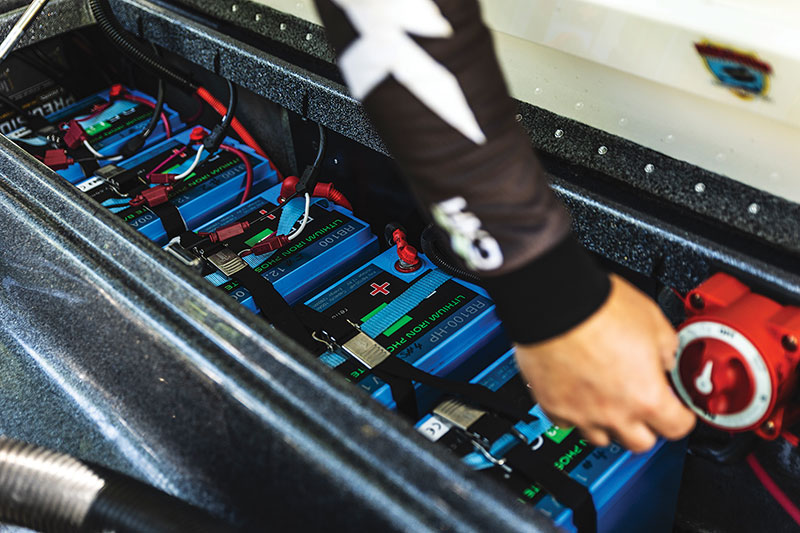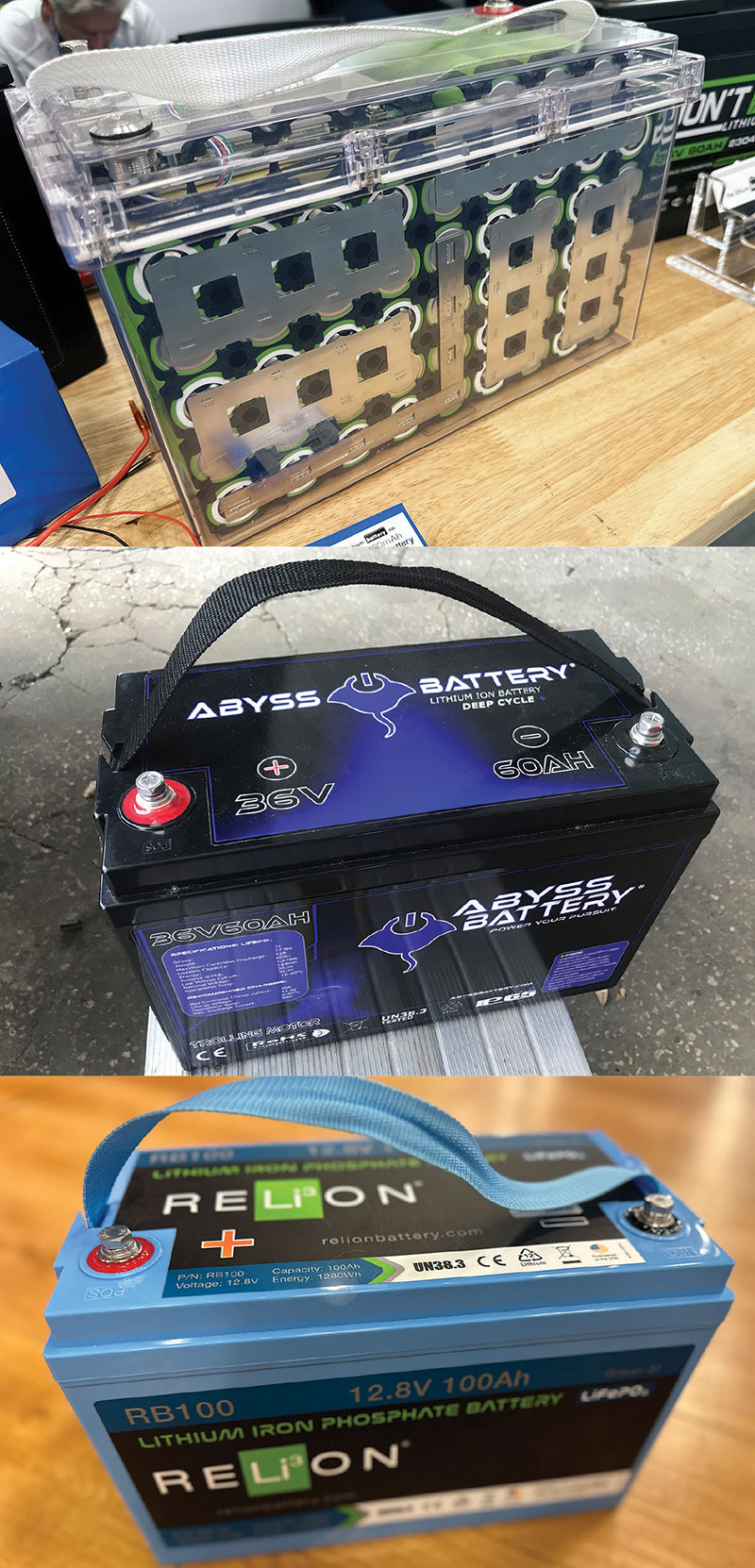
How to choose the best lithium battery for your boat.
Many boaters are taking the plunge and switching from a more traditional lead-acid battery or AGM battery to a lithium battery. But with so many lithium battery options out there, how does one know which batteries are a good choice and a wise investment and which should be ignored?
The good news is that several indicators will point you in the right direction, and if you know what to look for, you will end up with a battery that can serve you well for many years.
Battery cells
The simple truth is that not all lithium batteries are created equal, and even if the chemistry behind them is the same, they can vary drastically in performance.
One of the most common varieties of lithium batteries found on boats these days is lithium iron phosphate (LiFePO4). This variety of batteries, when combined with a quality built-in battery management system (BMS), has proved to be a safe option for boaters. These newer LiFePO4 batteries comprise multiple cells soldered together with a BMS that monitors the cells and can shut the battery down should one of the cells malfunction or start to overheat.
The cells of lithium batteries are not all the same quality from manufacturer to manufacturer. The best batteries will use grade A cells and a good way to determine what cells are in a battery is to look at the offered warranty. If it’s a 10- to 12-year warranty, the chances are good that the battery you are considering uses the better cells available. If the warranty is in the 2- to 5-year range, it may use a lower-grade cell.
Another indicator is the number of cycles the battery manufacturer claims the battery can achieve. Better cells will allow for more full and partial cycles when combined with a good BMS. It’s important to remember that a battery may be cheaper initially if it doesn’t have quality components. Still, you will have to replace it sooner than a high-quality lithium battery. If a quality LiFePO4 battery is well maintained and charged correctly there is no reason not to have it serve well for the term of the warranty.
BMS quality
The quality of the BMS also plays an important factor in battery quality and battery longevity. The BMS, a reliable guardian of your battery, will monitor things like over- or under-voltage, high temperature, external short circuits and over current. The software driving the BMS will shut the cells down (and the battery) should one of the above-mentioned faults occur, avoiding a catastrophic failure.
For example, the BMS in Relion and Mastervolt batteries (and there are other quality brands that do the same) limits the amount of voltage that can enter the cells during charging; this eliminates the possibility of overcharging and a CO2 build-up damaging cells through calcification. That damage can shorten the lifespan of the battery and degrade performance.
Even with this feature, it’s important to have a battery charger that’s designed to charge lithium batteries, as they require a constant higher voltage input than other types of batteries. The BMS also monitors low voltage and will not allow the battery to drop below a certain voltage. Running a lithium battery all the way down is very bad for the battery and can drastically shorten the life of the battery.
BMS units in batteries such as Relion’s RB100 battery will not allow individual battery cells to go below 2.0 volts, ensuring the battery can take a charge to bring the voltage back up. Relion offers a lithium starting battery (one that will not void a Mercury warranty) with a BMS system programmed specifically for starting applications. If looking for a starting battery, make sure it won’t void your engine’s warranty.
Other factors
Other factors also play a part in determining what makes a quality LiFePO4 battery, such as an IPX rating that will seal out water and moisture.
The connections and wiring between cells and the BMS are also important. Cheaper batteries tend to use thinner wire and low-quality internal connections. Many low-cost batteries have lots of space within the battery and use foam to hold cells in place. These voids, within the case, produce condensation in hot or cold environments when the battery is charged in those environments. The result can be a build-up of moisture that can damage the cells within the battery.
When considering a lithium battery or batteries for your boat, it’s crucial to do thorough research and not necessarily opt for the cheapest option. Check the components they are made of, how they are built and sealed, and how good the after-sales support is. By doing so, your final selection should serve you for years to come with reliable, safe and efficient power.






